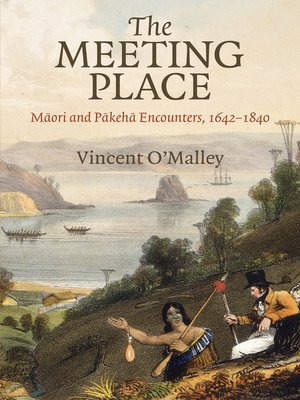
Sign up to save your library
With an OverDrive account, you can save your favorite libraries for at-a-glance information about availability. Find out more about OverDrive accounts.
Find this title in Libby, the library reading app by OverDrive.



Search for a digital library with this title
Title found at these libraries:
| Loading... |
Here Vincent O'Malley examines the 'meeting place' negotiated by Maori and Pakeha from 1642 to 1840. How did Maori and Pakeha negotiate a meeting place? Would Maori observe the Sabbath? Should Pakeha fear the power of tapu? Whose view of land ownership and control would prevail? How would Maori rangatira and Pakeha leaders establish the rules of political engagement? Around such considerations about how the world would work, Maori and Pakeha in early New Zealand defined a way of being together. This is a book about that meeting time and place, about a process of mutual discovery, contact and encounter — meeting, greeting and seeing — between Maori and Pakeha from 1642 to about 1840. After introducing the brief encounters and misunderstandings between European visitors and Maori before 1814, O'Malley focuses his study on the period between 1814 and 1840 when he argues that both peoples inhabited a 'middle ground' meeting place in which neither could dictate the political, economic or cultural rules of engagement. By looking at economic, religious, political and sexual encounters, O'Malley offers a strikingly different picture to traditional accounts of imperial Pakeha power over a static, resistant Maori society. In this meeting place, O'Malley shows, Maori and Europeans re-evaluated cultural priorities, adapted the customs of the other people that they found useful and sometimes 'went native' as they fell over into the other culture. O'Malley concludes with an analysis of how the middle ground gave way around 1840 to a world in which Pakeha had enough power largely to dictate terms.






